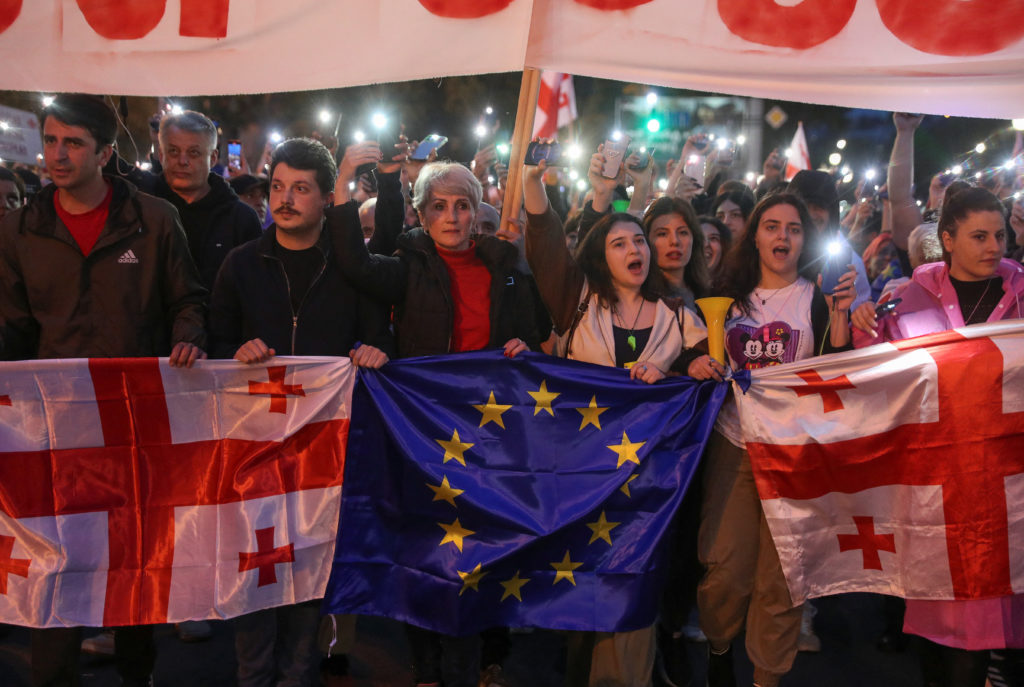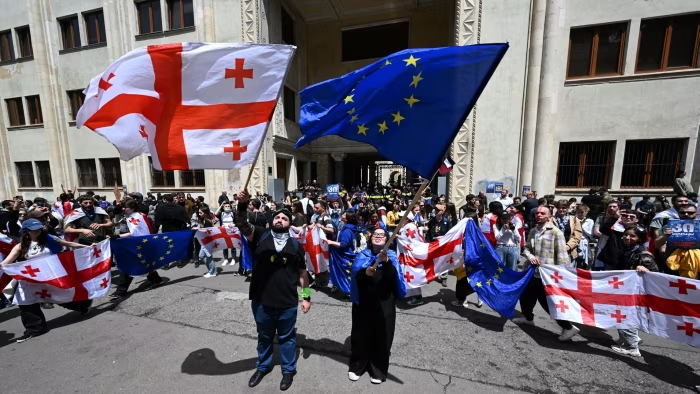A Pivotal Moment in Georgian Politics
In a significant political development. The Georgian parliament has overridden President Salome Zourabichvili’s veto of the controversial ‘foreign agent bill.’ This move has sparked widespread debate and concern. As the bill’s implications could be far-reaching for Georgia’s civil society and its relationship with the international community. This blog delves into the details of the bill, its potential impact. And the varied reactions from both domestic and international stakeholders.
The ‘Foreign Agent Bill’: What It Entails
Firstly, the ‘foreign agent bill’ requires organizations and individuals receiving more than 20% of their funding from foreign sources to register as foreign agents. This designation implies that such entities are operating under foreign influence, and they must comply with additional reporting requirements and regulations. The bill is reminiscent of similar laws enacted in other countries, which have often been criticized for stifling dissent and curbing the activities of non-governmental organizations (NGOs) and independent media.
Proponents of the bill argue that it is necessary to ensure transparency and protect national interests. They claim that foreign funding can influence domestic politics and public opinion, and therefore, it is essential to monitor and regulate these financial flows. The bill’s supporters believe that this measure will strengthen Georgia’s sovereignty and democratic processes.
However, critics argue that the bill is a tool to suppress civil society and silence critical voices. They contend that the term “foreign agent” carries a negative connotation and could stigmatize NGOs and media outlets, leading to self-censorship and reduced public trust. Furthermore, opponents of the bill warn that it could hinder the work of organizations that provide essential services and advocate for human rights and democratic reforms.
Overriding the Presidential Veto: The Political Dynamics
The decision to override President Zourabichvili’s veto highlights the deep political divisions within Georgia. The president had vetoed the bill, citing concerns about its impact on civil liberties and Georgia’s democratic image on the global stage. She argued that the bill would undermine the work of civil society organizations and damage Georgia’s international reputation as a democracy.
Despite the presidential veto, the parliament, dominated by the ruling Georgian Dream party, moved forward to override it. This required a three-fifths majority, which the ruling party successfully secured. The parliament’s decision underscores the ruling party’s commitment to the bill and its broader political agenda.
This override has intensified the political battle between the Georgian Dream party and the opposition. The opposition and civil society groups have condemned the parliament’s decision, viewing it as a direct attack on democratic principles and freedoms. They argue that the bill is part of a broader strategy to consolidate power and weaken independent institutions.

Implications: Impact on Civil Society and International Relations
The passage of the ‘foreign agent bill’ could have significant implications for Georgia’s civil society and its international relations. Firstly, NGOs and media organizations that rely on foreign funding may face increased scrutiny and regulatory burdens. This could limit their ability to operate effectively and carry out their missions. The potential stigmatization associated with being labeled a “foreign agent” could also deter public engagement and support for these organizations.
Moreover, the bill could strain Georgia’s relationships with its Western allies and international organizations. The United States and the European Union have previously expressed concerns about the bill, warning that it could undermine democratic principles and human rights. Georgian Parliament. By moving forward with the legislation, Georgia risks alienating key partners and jeopardizing its aspirations for closer integration with the West.
Additionally, the bill could impact Georgia’s domestic political landscape. The increased tension between the ruling party and the opposition, coupled with potential public unrest, could lead to a more polarized and unstable political environment. Civil society organizations, which often play a mediating role and advocate for peaceful dialogue, may find it more challenging to operate in this contentious climate.
Reactions: Domestic and International Responses in Georgian Parliament
The reaction to the Georgian Parliament decision has been swift and varied. Domestically, civil society groups and opposition parties have organized protests and called for the repeal of the bill. They argue that it is a step backward for Georgia’s democracy and a threat to fundamental freedoms. Human rights activists warn that the bill could lead to increased harassment and intimidation of NGOs and independent media.
Internationally, the response has been critical. The United States and the European Union have reiterated their concerns, urging the Georgian government to reconsider the legislation. International human rights organizations, such as Amnesty International and Human Rights Watch, have also condemned the bill, stating that it undermines civil society and democratic governance.
However, the Georgian Dream party and its supporters maintain that the bill is necessary for transparency and protecting national interests. They argue that the law will not hinder the legitimate work of NGOs but will ensure that foreign influence is appropriately disclosed and regulated.
A Contested Path Forward in the Georgian Parliament
The Georgian parliament’s decision to override the presidential veto of the ‘foreign agent bill’ marks a pivotal moment in the country’s political landscape. The bill’s passage has sparked significant debate about the balance between transparency and civil liberties, the role of foreign funding, and the future of Georgia’s democracy.
As the country navigates these contentious issues, the actions and decisions of its political leaders will have profound implications for civil society and international relations. The coming months will be crucial in determining how Georgia addresses these challenges and whether it can maintain its democratic principles while managing internal and external pressures.

The global community will be watching closely, hoping that Georgia can find a way to protect its democratic institutions and civil society while ensuring transparency and national sovereignty. The path forward is fraught with challenges, but it also presents an opportunity for Georgia to demonstrate its commitment to democratic values and human rights.
Inspired by Al Jazeera News and read more articles here or read previous articles here.
